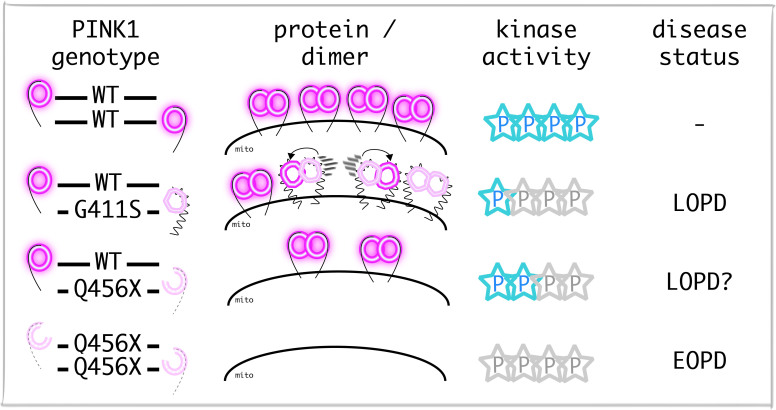See Gandhi and Plun-Favreau (doi:10.1093/aww320) for a scientific commentary on this article.
Heterozygous mutations in recessive Parkinson’s disease genes have been postulated to increase disease risk. Puschmann et al. report a genetic association between heterozygous PINK1 p.G411S and Parkinson’s disease. They provide structural and functional explanations for a partial dominant-negative effect of the mutant protein, which impairs wild-type PINK1 activity through hetero-dimerization.

